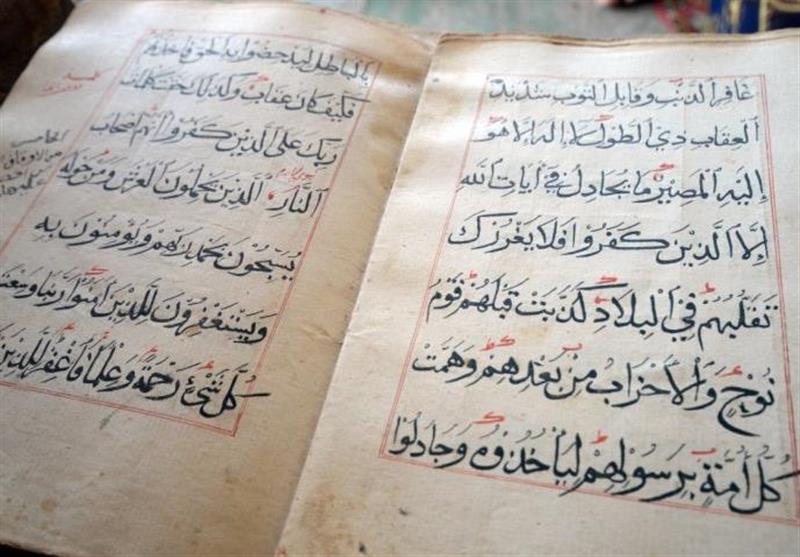Some Western countries expressed their opposition to the anti-blasphemy laws and, at the same time, strongly denounced the burning of the Quran in Sweden. An Iraqi immigrant to Sweden burned the Quran outside a Stockholm mosque last month, sparking outrage across the Muslim world and demands by Muslim states for action.
The United Nations Human Rights Council adopted on Wednesday, July 12, a resolution condemning acts of religious hatred such as the burning of the Quran, even though several countries said it endangered freedom of expression.
The decision was issued after an emergency discussion requested by Pakistan on behalf of a number of OIC countries after the burning of the Holy Quran in Sweden.
The United States, the European Union, and Britain called on the United Nations on Tuesday to vote against a Pakistani draft resolution on acts of religious hatred such as the burning of the Quran, arguing that it endangers freedom of expression.
Belgian Ambassador Marc Becstein de Boitswerve said on behalf of the European bloc that “the issue of defining the line between freedom of expression and incitement to hatred is complex.” He added, “The European Union has no other choice but to request a vote on the resolution.”
The resolution was approved by 28 members of the Council out of 47, including China, Ukraine, and most African countries, while seven abstained and twelve voted against, including France, Germany, the United Kingdom, and the United States.
The resolution stipulates the condemnation of “any advocacy and manifestation of religious hatred, including recent activities, public and deliberate, that have led to the desanctification of the Quran.” It calls on states to adopt laws that allow them to hold those responsible for these acts accountable.
The resolution requests the United Nations to identify countries that do not have such legislation and to organize a round table of experts to discuss the issue.
However, a number of Western countries expressed during the debates their opposition to the anti-blasphemy laws and, at the same time, strongly denounced the burning of the Quran in Sweden.
The UN Human Rights Council has approved a resolution on religious hatred and bigotry in the wake of a Quran-burning stunt in Sweden. pic.twitter.com/68M6P5VtZr
— Riham Moin (@armmoin) July 12, 2023
“We regret having to vote against this unbalanced text, but it contradicts positions we have long taken on freedom of expression,” said U.S. Ambassador Michele Taylor.
As for her French counterpart, Jerome Bonnavon, he indicated that human rights protect “persons and not religions, sects, beliefs, or their symbols.”
British Ambassador Simon Manley admitted, like a number of other Western diplomats and the United Nations, that freedom of expression can be restricted in exceptional cases. “We do not accept that attacks on religion, by definition, constitute an invitation to hatred,” he said.
UN High Commissioner for Human Rights Volker Türk emphasized that “hate speech in all its forms is increasing everywhere,” calling for combating it through dialogue and education.
He added that “inflammatory speeches and actions against Muslims and anti-Semitism actions and speeches targeting Christians or minorities (…) are manifestations of complete disrespect.” He described them as “offensive.”
Some Latin American countries, including Mexico and Honduras, abstained, arguing, like Western countries, that more time was needed to negotiate and reach consensus.
Mexico affirmed before the vote that “any expression of criticism of religions does not in itself constitute incitement to violence and discrimination.”
On June 28, an Iraqi refugee in Sweden burned pages from the Quran in front of the largest mosque in Stockholm during Eid al-Adha.
The Swedish police had allowed the assembly during which pages of the Qur’an were burned, but later opened an investigation into “incitement against an ethnic group” because the burning took place in front of a mosque.
This incident triggered a chain reaction in the Islamic world
The United Nations High Commissioner for Human Rights, Volker Türk, affirmed that “hate speech of all kinds is increasing everywhere,” calling for combating it through dialogue and education.
He added that “inciting speeches and actions against Muslims, anti-Semitism, and actions and speeches targeting Christians or minorities are manifestations of complete disrespect.” He called it “offensive.”
Furthermore, he said that “imposing restrictions on any speech or expression must remain an exception,” but international law requires “the prohibition of every advocacy of national, ethnic, or religious hatred.”
However, he believed that “any domestic restriction on the prevailing right to freedom of opinion and expression must be placed in such a way that its sole aim and result is to protect individuals, rather than exempting religious belief from criticism.”






